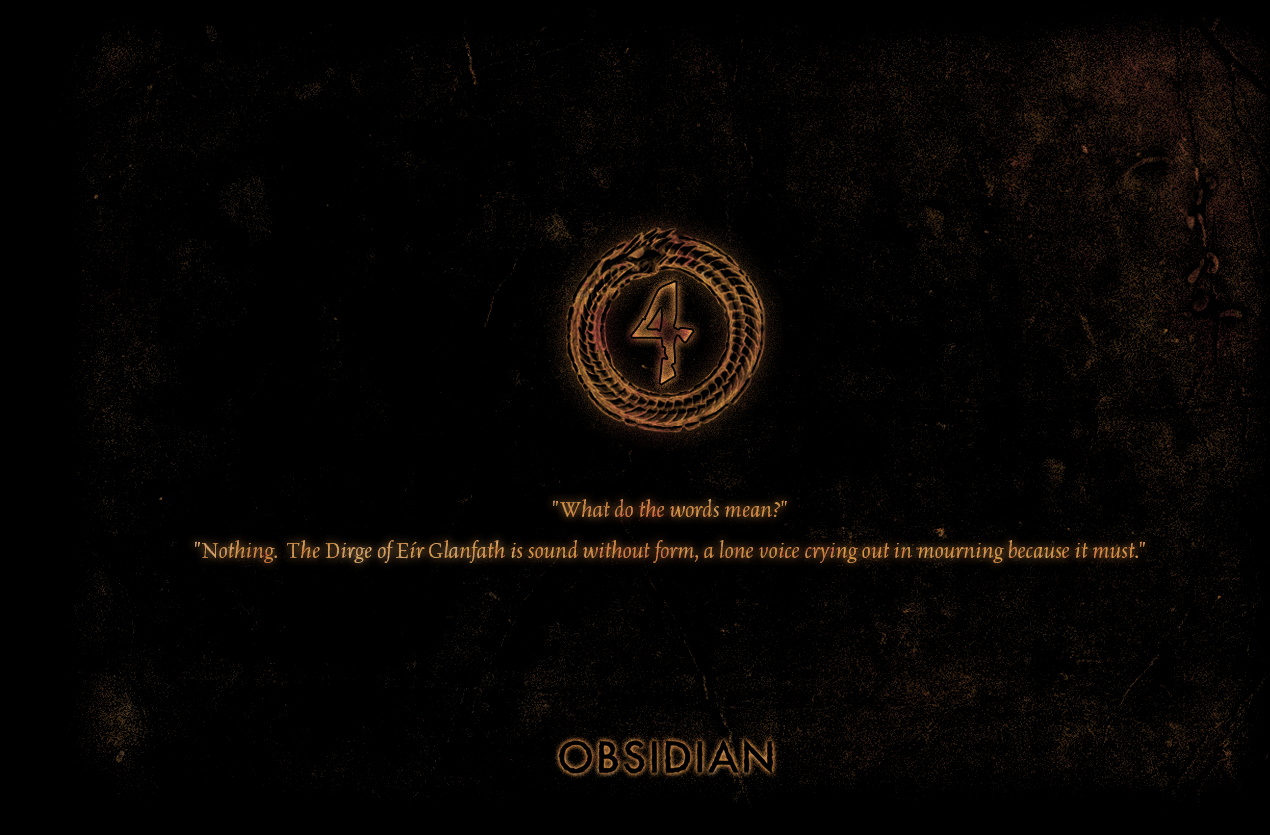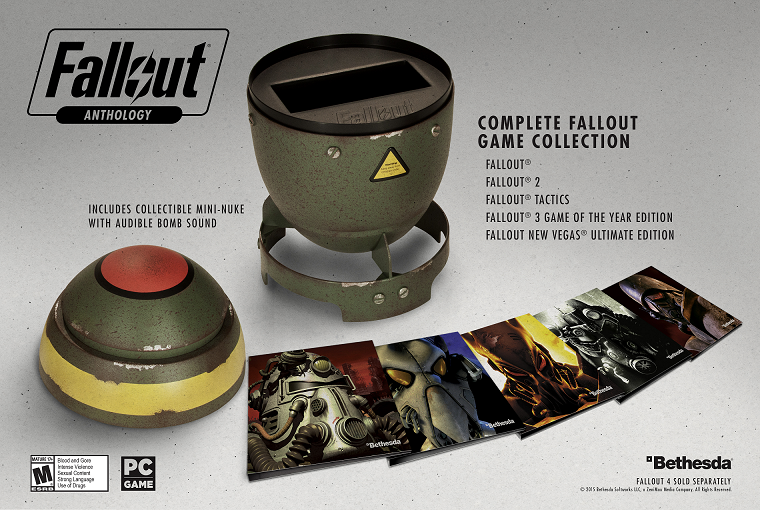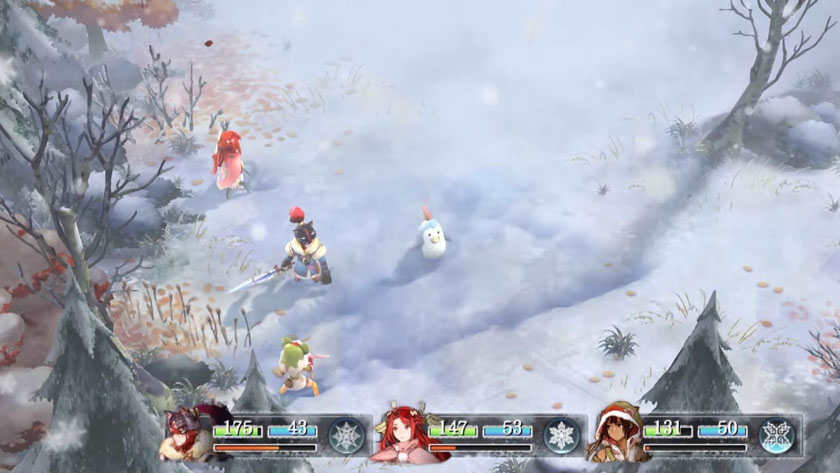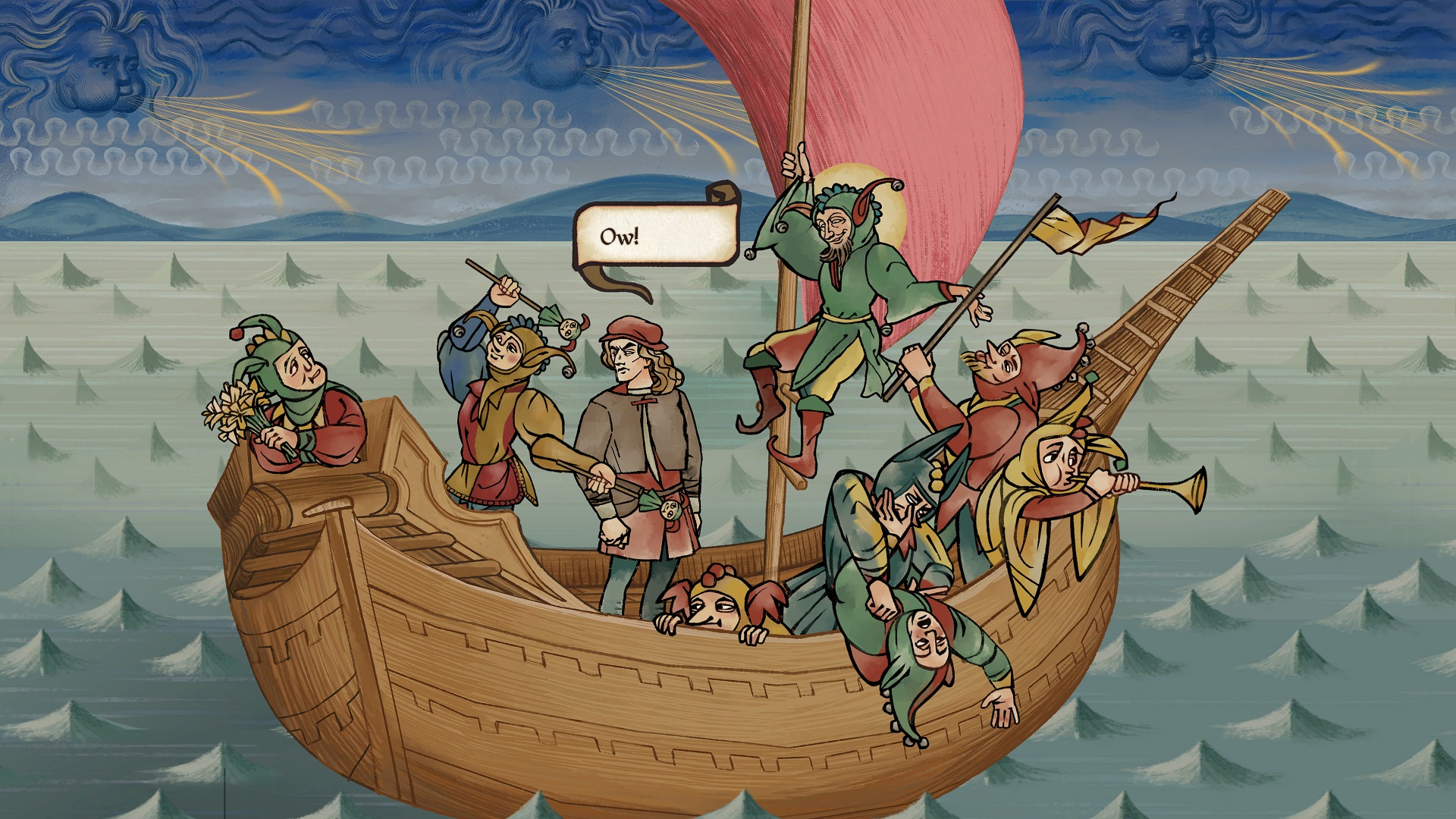
For years I’ve known Obsidian as an RPG studio. From Neverwinter Nights 2 to Fallout New Vegas to Pillars of Eternity, they have a long, rich history as a studio that worked pretty much exclusively on RPGs. Now, they’ve started to branch out. First there was Grounded, the Honey I Shrunk the Kids-esque survival game, which has just left early access. Around the same time Grounded’s release date was announced, another new Obsidian game was announced; Pentiment. An entirely conversation-based murder mystery game with a novel art style, Pentiment felt like a risky endeavour, but the end result is utterly fantastic.
Pentiment has you slide into the life of Andreas Maler, a journeyman artist who is residing in a remote alpine village while working on his masterpiece. To pay his rent at a small farm, Andreas works in the local Abbey’s scriptorium, using his artistic skills to make copies of books. Almost immediately, a local Baron (who is less than liked in the village) arrives to check the progress in a text he has requested a copy of. He takes an interest in Andreas, pulling him into conversations and complicated situations, before becoming the trigger for the first murder mystery in the game. From there, it’s all up to Andreas to investigate and determine who he believes the guilty suspect is.
The use of the word suspect is very deliberate here, as there is rarely/never a definitive way to tell who the murderer is. Instead, you spend your day speaking to villagers, tracking down leads and piecing together one or more different suspects stories. Specifically, it seems impossible to track down every single piece of information. Instead, you need to decide who and what to focus on, which means you’ll miss pertinent information regarding other subjects. Once you’ve accused a suspect, you’re not told definitively that they were the murderer, it’s instead left up to your interpretation. This was one of my favourite aspects of Pentiment, as it opens the game up to multiple stories and playthroughs.
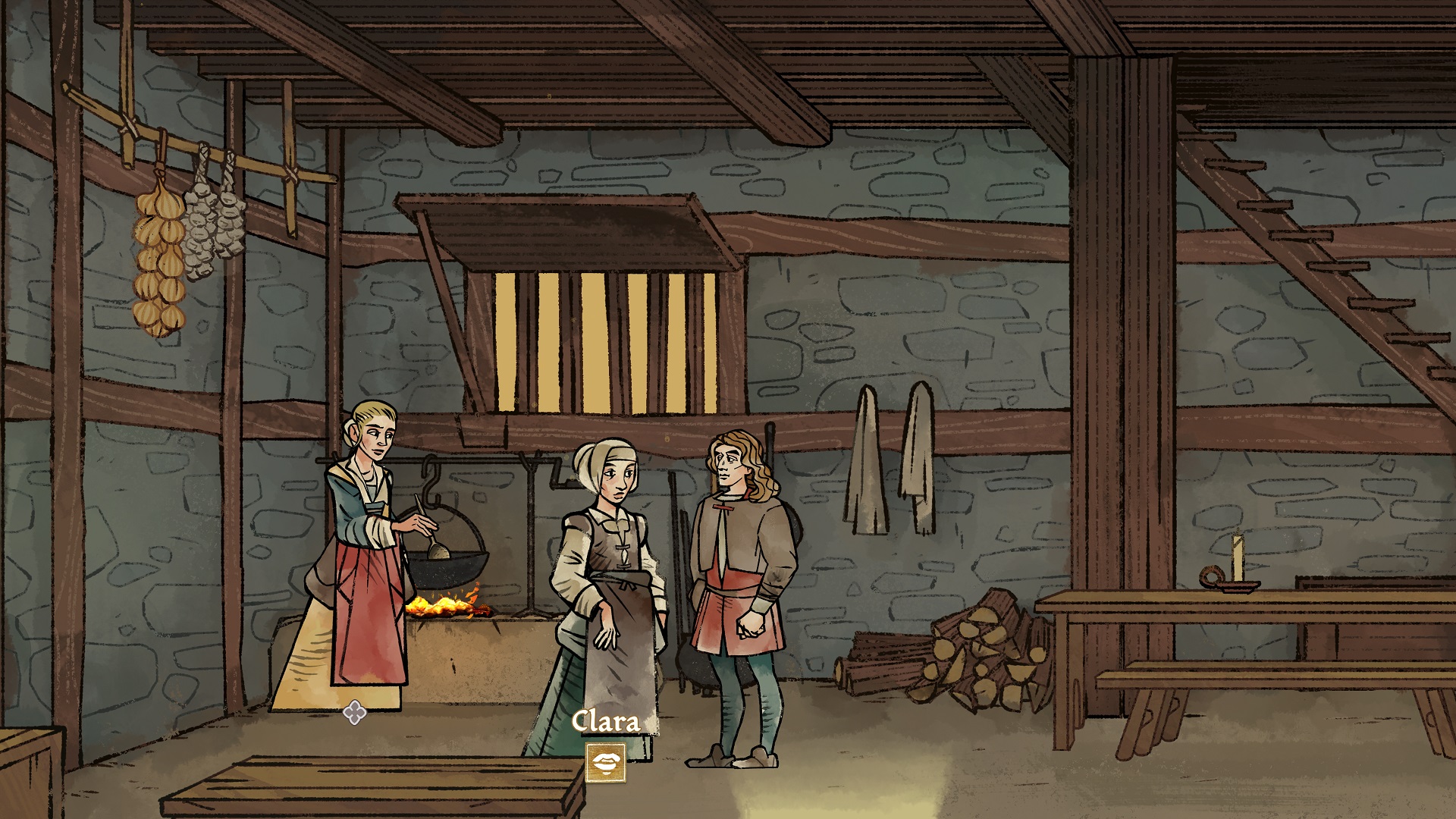
How your investigation works in practice is through conversations with the village’s many occupants and investigating the world, all while working around the game’s time of day system. As you walk around talking to people and investigating, you’ll sometimes be presented with options that will ‘take some time’. This could be investigating a ruin, cutting some cookies or even exhuming a grave. These situations progress the time of day, and also provide you with information that can be used towards your investigation. There aren’t enough periods of time through your investigations to complete all of these actions, so you’ll need to carefully choose which you perform. Generally speaking, conversations don’t progress time in this way, so it’s generally suggested that you complete every conversation possible before progressing time.
All of this investigation requires plenty of reading, so much of the game relies on its case of characters and writing. Thankfully, this is where Pentiment absolutely shines. The characters feel like real, living, breathing people, as opposed to facsimiles created for a game. They have fully formed personas, complete with flaws, and their trials and tribulations are presented in believable ways. Watching characters progress, learn and react to choices I made throughout the whole game truly endeared them to me. Choices I made early on would be referenced hours later, while other decisions provided immediate consequences. Specifically, choices were used and mattered in truly consequential ways. Coupled with some absolutely fantastic writing, plus a ever-useful glossary that could be popped up at anytime during conversation for keywords, and Pentiment was a joy to read. It also helps that the development team evidently did massive amounts of research to maintain historical accuracy where possible, with a massive bibliography and plenty or research assistance present in the credits.
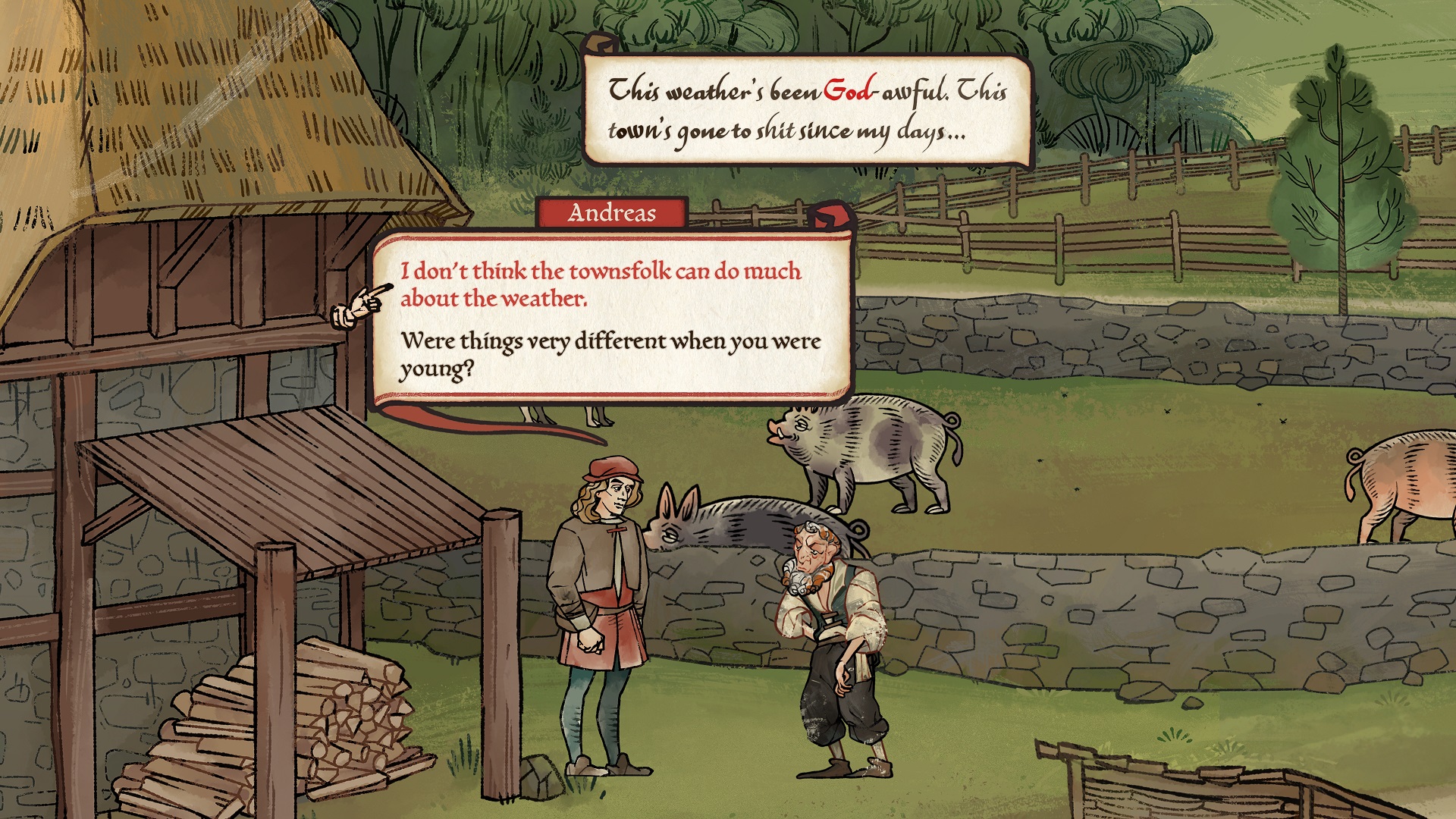
The final piece of Pentiment that truly shines is its style, which is evident in every facet of the game. The world itself is reminiscent of the Mannerism style of painting that was popular throughout the 16th century. If you’ve seen works like Michelangelo’s Sistine Ceiling, you’ll likely recognise the style the development team have gone for here. It’s a unique style for a game and helps set the scene for the story told. This style continues to the text shown on screen, with differing styles dependant on the speaker’s societal class and profession. Printers speak in a style like early pressed words, while peasants talk in a simple fare and nobles speak with a much more flowery style of text. This combines an element of historical realism, while providing another unique visual element to the game. Throw in some lovely, themed music and Obsidian have set the mood perfectly.
From its announcement it was immediately apparent that Pentiment was a relatively risky idea, but one that was filled with promise. After completing the game, there’s no doubt at all that the promise of Josh Sawyer and Obsidian’s ideas where fully realised in the game. What they have created is a unique and thoroughly interesting experience that is incredibly easy to recommend.
Pentiment was reviewed on Xbox Series X with a copy provided by the publisher. The game will also release on PC. For more information, check the official website.
- Incredibly unique style - Fantastically well written - Characters feel like real people
- Some may not be down for the amount of reading required

